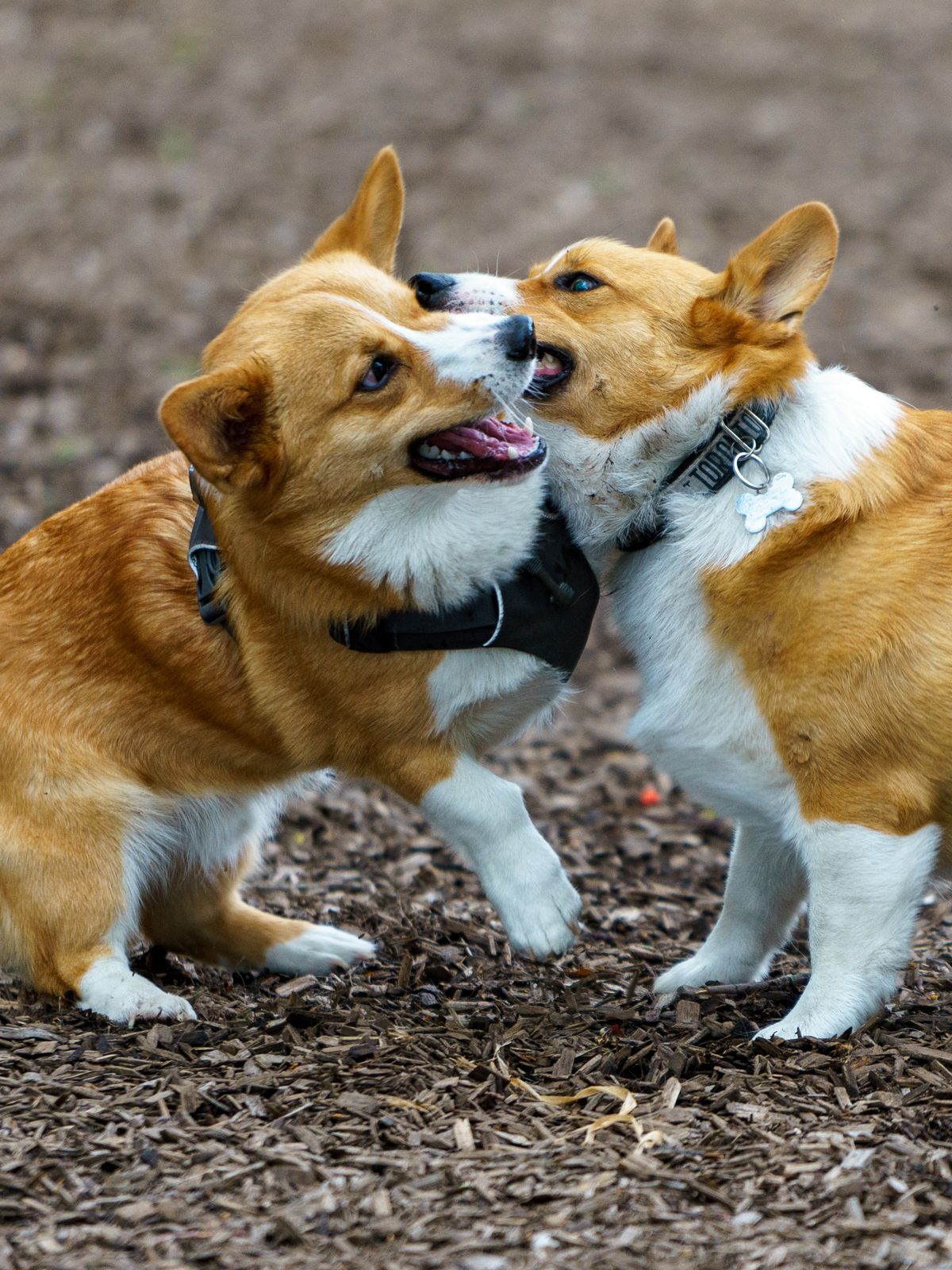
Reactive dogs
Reactivity to other dogs is a hugely common behavioural issue affecting many canines. This behaviour manifests in various ways, from mild alertness or excitement to more intense displays like barking, growling, lunging or attacking. Understanding the root causes, addressing triggers, and employing effective training methods are essential when managing and preventing this unwanted behaviour.
One of the primary reasons for reactive behaviour towards other dogs is fear or anxiety. Dogs may feel threatened or uncomfortable in the presence of other unfamiliar dogs, which can lead to a negative and defensive response. This reaction can also stem from a lack of socialization during their critical developmental stages. Dogs that haven't been exposed to other dogs or had positive interactions during their formative months may exhibit reactive behaviour as they grow older.
Past negative experiences, such as being attacked by other dogs, can significantly contribute to reactivity, but the reasons behind this is not always what the owner would expect. These experiences can leave lasting emotional scars, making dogs wary and reactive towards other canines as a defensive mechanism.
Additionally, genetics and breed tendencies can influence reactive behaviour if certain breed types are not managed responsibly by their owner. Some guarding or herding breeds may have a natural inclination to be more vigilant or cautious around unfamiliar dogs, which might sometimes be misinterpreted as reactivity.
Addressing reactivity involves a complex approach. Firstly, and most importantly, professional guidance from a qualified canine behaviourist is highly recommended. They can conduct an assessment to understand the underlying causes and tailor a training plan suited to the dog's specific triggers and reactions.
Some training methods are widely endorsed by many dog trainers, such as distraction techniques using food. This method is mostly, very ineffective at managing reactive behaviour, why? because distraction, does exactly that, it distracts rather than address the root cause of the behaviour. This means that in time, the likelihood of being caught out when your guard is down is incredibly high, as vigilance from the owner is essential at all times. This is something a dog can pick up on and respond negatively to. The fact that this technique relies heavily on food, by either throwing handfuls of it all over the floor, or holding it in your hand means that if timing is not perfect every single time you do it, you risk rewarding the wrong thing all together.
Incorporating regular socialization in a controlled environment is beneficial. Gradual introductions to calm and friendly dogs in a supervised setting can help build positive associations and improve the dog's comfort around other canines. Avoidance is not a solution. A dog needs to feel comfortable and trust the owner completely when it comes to situations that make a dog uncomfortable. Contact Back to Balance Canine Behaviourist via the contact form on the website.
Azz Rainey has worked with a large number of dog behavioural issues over the years, including, separation anxiety, destructive behaviour, aggression, reactivity, high prey drive, extreme fear and resource guarding.
Working in Oxfordshire, Gloucester, Swindon and Evesham as well as the surrounding areas to provide one to one sessions with dog owners in their own home
- Hits: 917